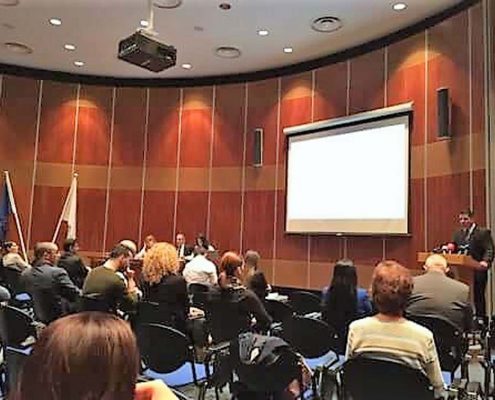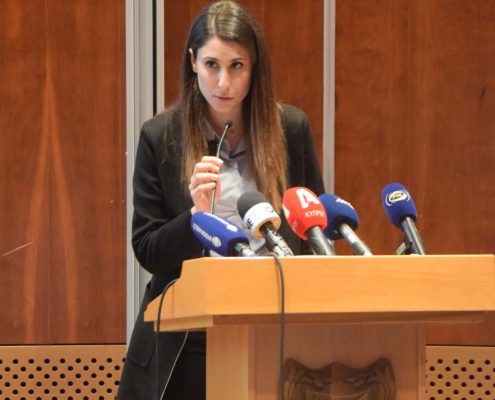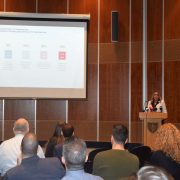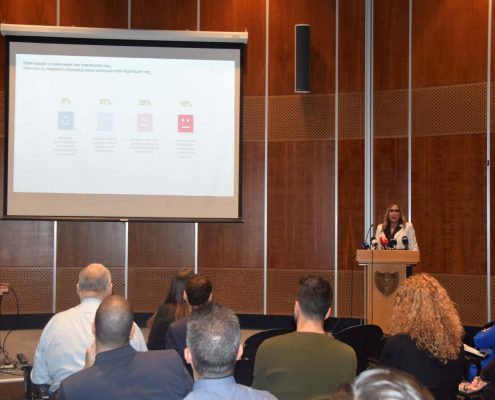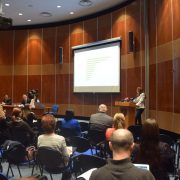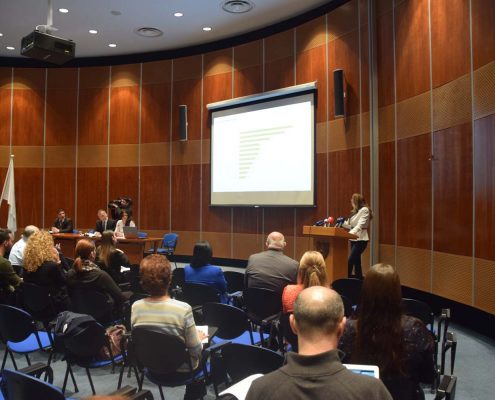The National Betting Authority presented the results of the first National Prevalence Study on gambling participation
The results of the first National Prevalence Study on the impact, behavior and characteristics of users of gambling activities were presented today by the National Betting Authority (NBA). The goals of the survey were to record the degree of participation in gambling, to determinate the percentage of problematic gambling, to study the socio-demographic characteristics of players, to determinate the frequency of participation, as well as the budget and actual participation costs. An analysis of the population’s knowledge of legal and illegal gambling was recorded, as well as the dangers of gambling addiction. The different player profiles were examined, with emphasis on those players that are classified as pathological.
According to the prevalence study, 75% of Cypriots aged 15 and above, representing 399,750 of the total population, are currently involved in gambling activities. Out of those that are involved in gambling activities, 81% (323,798 people) are identified as non-risk players, 13% (51,967) are considered as players with symptoms of possible problematic gambling behaviour and 6% (23,985) are identified as problematic and pathological gamblers. Furthermore, the study demonstrates that 85% of respondents believe that the Government should strengthen its role in regulating gambling activities.
The Chairwoman of the National Betting Authority, Ms. Ioanna Fiakkou, mentioned that the lack of knowledge that existed up to now, regarding the participation of Cypriots in gambling activities, has led to the creation of urban myths and misconceptions. «The results of this study provide enough information and constitute the right tool for taking the necessary measures in all aspects of the gambling participation. Moreover, the preferences of players in specific gambling games (that 6 out of 10 are either illegal or in a grey area), confirm and make necessary the strengthening of the Government’s policies to effectively regulate the gambling industry. This is achieved through the upgrade of the legislative framework and the elimination of illegal activities. These Governmental policies are embraced and are demanded by 85% of the population», the Chairwoman stated. Ms. Fiakkou also added that «At this present stage, there is a fragmentation of responsibilities among various relevant stakeholders, and the coordination between these stakeholders is still in the early stages. In conclusion, the Authority considers necessary the mobilization of all stakeholders and looks forward to the transformation of its Strategy into a National Strategy. Therefore, we invite all relevant stakeholders and Governmental services to respond to our call for the development and adoption of a unified National strategy on gambling, on the basis of a joint program. Consequently, through the coordinated efforts of all of us, on the basis of a National Strategy, our common goals, both short and long term, will be implemented effectively and timely».
During his analysis, professor Dr. Constantinos N. Phellas, Vice Rector for Faculty and Research at the University of Nicosia, mentioned that «A very interesting component, from a sociological point of view, that emerges from the findings of the study, is the fundamental role of the Cypriot family in shaping the consciousness related to gambling. There are a lot of players who declare that they were accompanied by their father or another member of their family during their first experience in gambling. Therefore, family, and mainly the male figure, which emerged as the initiator to the world of gambling for young players, bears a large share of responsibility in protecting minors from harmful–for their age– stimuli and in cultivating a future responsible gambling behavior. This behavior will be governed by the awareness of limits and self–protection».
From his point of view, Dr. Antonis Stylianou, Lecturer of Law at the University of Nicosia, explained that «This quantitative study is of crucial importance for the mapping of gambling– related behaviours and is a particularly useful tool for drawing conclusions and recommendations, regarding the current and future legislative framework on gambling. Primarily, the results of this prevalence study confirm the Government’s policy for more effective regulation of the various aspects that concern gambling, while at the same time stress the need for homogeneity, supervision and implementation of various gambling laws under the supervision of the National Betting Authority».
The prevalence study was conducted by IMR and University of Nicosia on a National basis, between November 2017 and January 2018, on a random sample of 3.000 people aged 15 and above, through personal interviews.


